Dog Eye Boogers: What Is It, How To Get Rid Of It, When It Is A Cause For Worry?

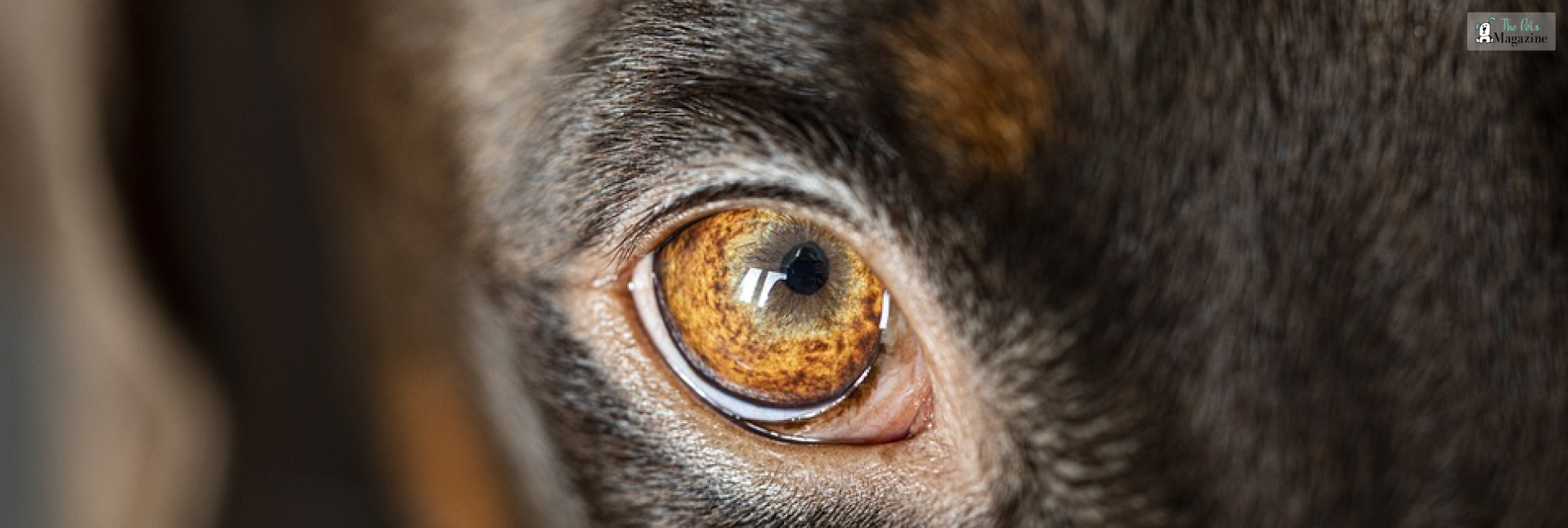
It is normal to feel concerned if you see eye discharge or Dog eye boogers, as it is more commonly known among pet parents around your dog’s eyes. Before you panic at the sight of eye discharge, know that some amount of eye gunk is normal for dogs. But how do you know if it’s something to worry about or just business as usual? We’ve decoded the signs to help put your mind at ease or alert you when it’s time to call the vet. Read on to know what dog eye boogers are, type of eye discharge in dogs and how to get rid of it.
Common Types of Dog Eye Boogers
Eye discharge in dogs can mean a few different things. Let’s go over some of the common types so you know when to worry and when it’s normal.
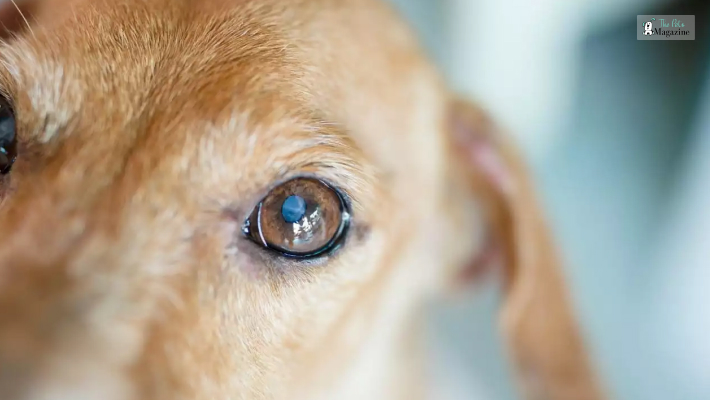
Clear or White Discharge
This is usually normal and nothing to fret about. It can be caused by eye irritation from dust, wind, or simply your dog’s eyes producing excess tears. As long as it’s clear and odorless, just gently wipe it away with a soft cloth and monitor your dog. If it persists for more than a couple days, mention it to your vet.
Yellow or Green Discharge
Thick, yellow or green eye discharge can indicate an eye infection and requires vet attention. It’s often accompanied by red, swollen eyes, squinting, or pawing at the eyes. Eye infections need medication to clear up, so take your dog to the vet promptly for an exam and treatment.
Excessive Brown Discharge
While some brown eye discharge, like little crusties in the corners of the eyes upon waking, is normal, excessive amounts can signal an injury, blocked tear duct, or other issue and warrants a vet visit. It’s best to have any abnormal eye discharge checked out to be safe.
By knowing the difference between normal eye discharge and the types that require vet care, you can keep your faithful companion’s eyes healthy and catch any problems early. If ever in doubt, call your vet – they’re always happy to provide advice and guidance for your dog’s wellbeing.
Common Causes of Abnormal Dog Eye Discharge
Common causes of abnormal dog eye discharge include:
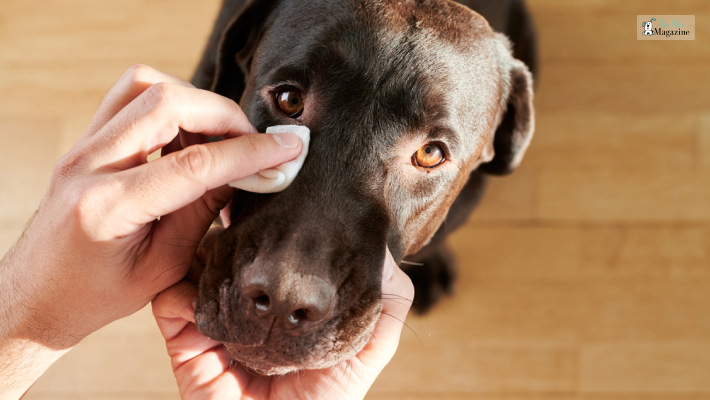
Eye infections
Bacterial or viral eye infections can lead to increased discharge, especially if the discharge is yellow or green. Eye infections often require treatment from a vet in the form of antibiotic eye drops. Here are the common signs and symptoms to watch for:
- Redness and Inflammation: The affected eye may appear red and swollen.
- Swelling of the Eye Area: Look for any puffiness or swelling around the eye.
- Eye Looks Closed: If your dog keeps one eye partially or fully closed, it could be a sign of infection.
- Excessive Tears: Increased tearing or watery discharge from the eye is common.
- Abnormal Discharge: Yellow or green discharge from the eye is indicative of an infection.
- Itchiness or Signs of Pain: Your dog may paw at the eye or rub it on the ground due to discomfort.
- Blinking More Frequently: Dogs with eye infections may blink excessively.
Allergies
Just like humans, dogs can suffer from eye allergies caused by pollen, dust, or other environmental irritants. Excessive clear or white discharge is common, and you may notice your dog rubbing their eyes frequently. Antihistamine eye drops or oral medication can help relieve allergy symptoms.
Dry eyes
A lack of moisture in the eyes can lead to increased discharge as the eyes work to lubricate themselves. Adding moisturizing eye drops for dogs a few times per day can help combat dry eyes and clear up any discharge.
Eye injuries or ulcers
An eye injury, scratch, or ulcer on the cornea can trigger discharge, especially if the discharge is bloody or pus-filled. See your vet immediately for an eye exam and treatment. Left untreated, eye injuries and ulcers can lead to vision loss.
Other issues
Additional problems like glaucoma, conjunctivitis (pink eye), or eyelid abnormalities may also contribute to excess eye discharge in dogs. It’s best to have your vet examine your dog if abnormal discharge persists for more than a couple of days or is accompanied by other symptoms like squinting, pawing at the eyes, or vision loss. Early diagnosis and treatment is key to preventing complications and discomfort for your canine companion.
If your dog’s eye boogers or discharge seem excessive or have changed in color or consistency, it’s a good idea to have your vet examine them. In many cases, eye discharge is normal and nothing to worry about, but some conditions do require treatment.
Treating Dog Eye Boogers and Discharge Issues
To clean normal eye boogers or discharge from your dog’s eyes, use a warm, wet washcloth to gently wipe away any crust or mucus. Be very gentle, especially with long-haired breeds. You can also use sterile eye wipes or saline eye drops designed for dogs. Never use human eye drops, as these can irritate a dog’s eyes.
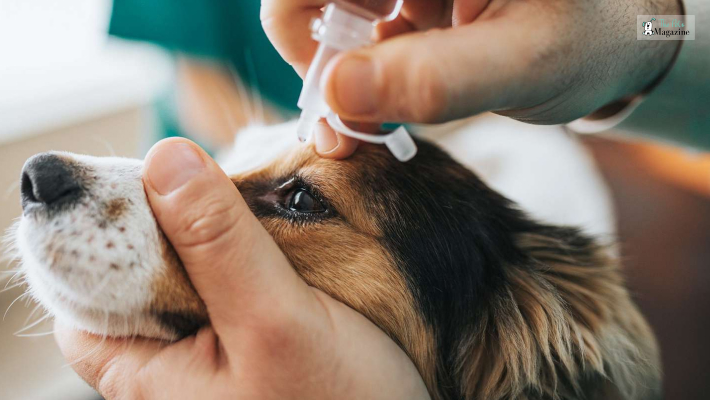
Are There Any Home Remedies For Treating Irritating Eyes in Dogs?
If your dog’s eyes are irritated, there are a few home remedies you can try to provide some relief. However, it’s important to first ensure that the irritation isn’t due to a more serious condition that requires veterinary attention. Here are some gentle remedies:
- Saline Solution: A simple saline solution can help to clean and soothe the eyes. Mix 1/4 teaspoon of salt with 1 cup of warm, distilled water. Use a clean cloth or gauze pad to gently wipe the eye area.
- Chamomile Tea: Chamomile has natural soothing properties. Brew some chamomile tea, let it cool down, and then use a clean cotton ball to apply it to the irritated eye area.
- Rooibos Tea: Similar to chamomile, rooibos tea can also be used. Brew the tea, wait for it to cool, and then apply it to the eye with a cotton swab.
- Cold Compress: A cool cloth can help reduce inflammation and provide relief. You can moisten a washcloth with cool water and gently apply it to your dog’s closed eyes.
For minor infections like conjunctivitis (pink eye), your vet may prescribe antibiotic eye drops or ointment to clear up the infection. Be sure to administer as directed for the full course of treatment. If the discharge is greenish, bloody, or has a foul odor, it could indicate an ulcer or more serious eye issue and warrants a vet visit right away.
Sometimes eye discharge results from a blocked tear duct or other physical eye abnormality. In these cases, your vet may need to flush the duct or perform other procedures to relieve any blockage or irritation. Surgery may even be recommended in some situations to correct an anatomical issue.
By keeping a close eye on your dog’s eyes and discharge, and taking them for regular vet checkups, you’ll help make sure any problems are caught early. Your dog’s eyesight is a precious gift, so diligent care and monitoring is well worth the effort.
How Can I Prevent Eye Infection In Dogs
While completely preventing eye infections in dogs is impossible, there are several steps you can take to significantly reduce the risk:
- Regular Cleaning: Gently wipe your dog’s eyes with a damp cloth or cotton ball soaked in warm water or chamomile tea (cooled). This removes debris like dust, pollen, or irritants that could trigger infections.
- Frequency: The frequency of cleaning depends on your dog’s breed and environment. Dogs with excessive tear stains or prone to allergies might need daily cleaning, while others may be fine with weekly cleaning.
- Reduce Irritants: Limit your dog’s exposure to dust, smoke, and other airborne irritants that can inflame the eyes.
- Control Yard Hazards: Keep the yard free of overgrown bushes, foxtails, or other sharp objects that could scratch your dog’s eyes.
- After Swimming: Rinse your dog’s eyes with clean water after swimming in pools, lakes, or oceans to remove chlorine, salt, or bacteria.
- Balanced Diet: Provide your dog with a high-quality diet rich in vitamins and antioxidants to support their overall immune system and eye health.
- Vaccinations: Keep your dog’s vaccinations up-to-date to prevent infections like canine distemper, which can cause eye problems.
- Parasite Prevention: Use parasite preventatives to control fleas, ticks, and mites that can transmit diseases or irritate the eyes.
- Regular Eye Exams: Schedule regular checkups with your veterinarian, who can examine your dog’s eyes for any abnormalities or signs of infection.
- Be Observant: Look for signs of potential eye infections like redness, squinting, excessive discharge, pawing at the eyes, or cloudiness. Early detection allows for prompt treatment and minimizes complications.
Wrapping Up
Your dog’s eyes are a window into their health and happiness. So as a responsible pet parent, keeping a close eye on changes in your dog’s eyes is important to help catch any potential issues early. Don’t panic at the first sign of goop—it’s usually normal and harmless.
But do keep an eye out for any changes in color, consistency, or if your pup seems bothered by their eyes. And of course, if you ever have any concerns, it’s always best to have your vet take a look. They can check for any infections and make sure your dog’s eyes stay happy and healthy.
Have you read these?







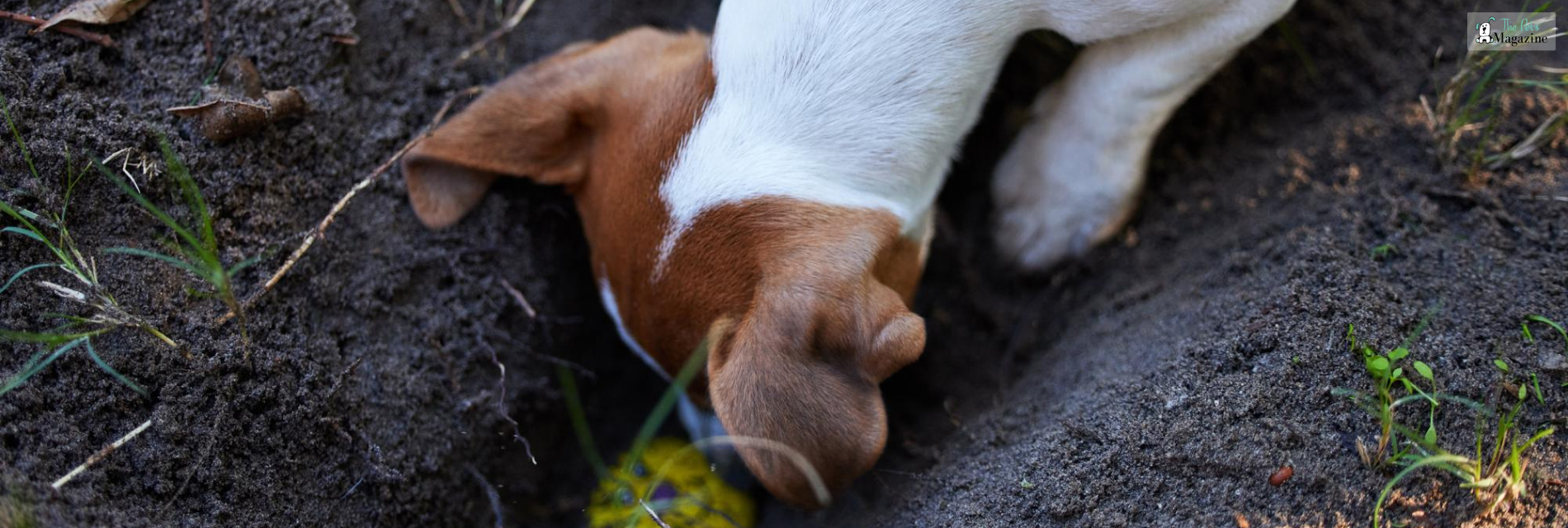
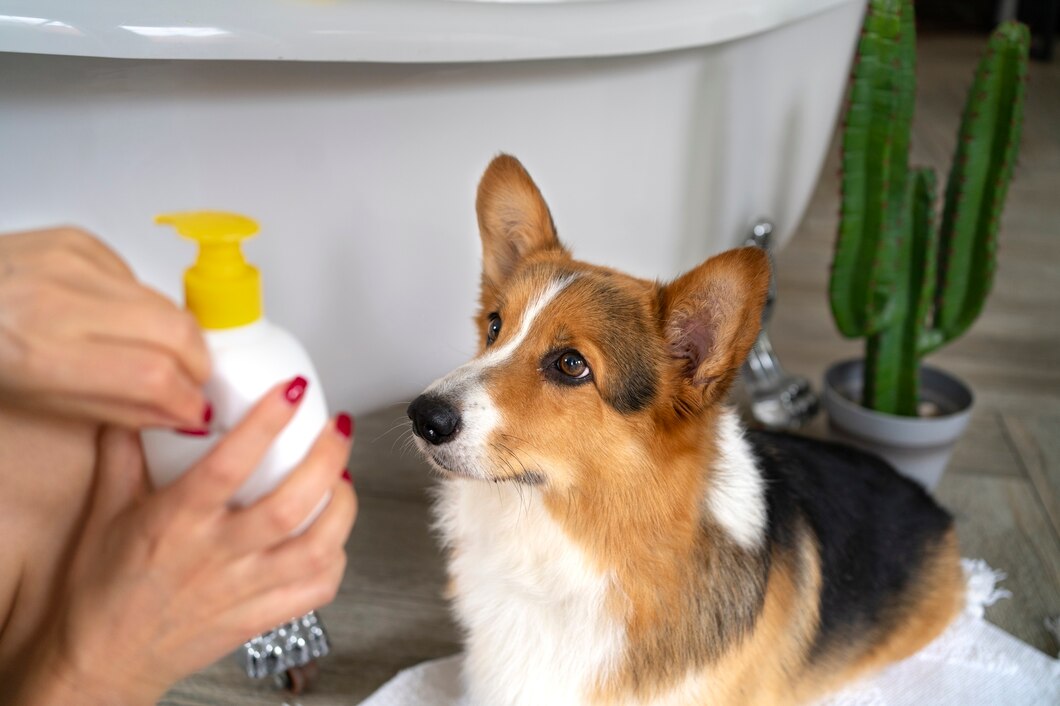
Leave A Comment